In this opinion piece, Cuentacuentos founder Read Spear questions the inherent moral superiority of buying producer-owned mezcal. More on Cuentacuentos here.
In the ever-expanding world of mezcal, a popular refrain has emerged: only buy from producer-owned mezcal brands. The reasoning seems straightforward—cut out the middleman, put more money in the hands of mezcaleros, and avoid brands that might be exploitative. It’s an appealing idea, but the reality is more complicated. Like most purity tests, the “producer-owned or nothing” mentality offers a simple moral framework but collapses under scrutiny. It flattens the complexities of mezcal production, ignores economic realities, and overlooks the diversity of ways that mezcal reaches consumers. The truth is that no business model can guarantee the morality of its participants.
Who’s really making the producer-owned mezcal?
The “producer-owned” label suggests a certain purity—that the name on the bottle belongs to the person behind the still. But this can be an illusion. Many so-called producer-owned brands don’t make their own mezcal at all. Instead, they hire people. They own the brand, but they aren’t tending the agaves, running the still, or standing in the horno. The work is done by employees or contracted laborers.
Now compare that to a brand that buys directly from small, independent producers. Who is making the mezcal in that scenario? The small family producers. The only difference is that they don’t have the capital, branding, or market access to sell under their own name. If one model hires laborers to make its mezcal and another simply buys mezcal from independent producers, what’s the difference? In both cases, there’s a separation between the “brand owner” and the “mezcal maker.” But in the second case, the people actually producing the mezcal are being credited and paid directly for their work. The producer-ownership purity test completely ignores this distinction.
The arbitrary line-drawing of mezcal brand ownership
Between a batch of roasted agave and the moment someone takes a sip of mezcal, a long chain of work takes place. Every single one of these steps must be done by someone:
1. The producer harvests agaves, roasts, ferments, and distills.
2. Someone bottles it.
3. Someone exports it.
4. Someone handles compliance and logistics.
5. Someone markets it, builds relationships, and creates demand.
6. Someone distributes it to bars and retailers.
7. Someone sells it to the final consumer.
In the US, the three-tier system makes this separation even more rigid—by law, importers, distributors, and retailers must be separate entities. Even if a producer wanted to control every stage of the process, they couldn’t. Yet people still try to draw artificial moral lines around this structure. If a single wealthy family controls the entire process, is that better than a system where each piece is intentionally separated? If two companies split production and export, does that make it worse? If a distiller gets a revenue share instead of brand ownership, is that unethical? The purity test fails because it focuses on structure rather than ethics. The real question is: Are the people involved being treated fairly?
Not every producer wants to be an entrepreneur
There’s an assumption baked into the producer-owned argument: that every mezcalero wants—or has the skill–to run a multinational business. But that’s simply not the case. Some mezcal producers want to own a brand, export, market, and manage the entire supply chain. Some want to focus solely on production and let someone else handle the rest. Others fall somewhere in between. And that’s before we even consider their business expertise or access to capital.
The idea that “producer-owned” is the only ethical model ignores the reality that mezcaleros are often specialists in making mezcal—not in licensing, branding, or managing global distribution. Expecting them to do everything assumes that producing mezcal and running an international business are the same thing. They aren’t. Branding, exporting, and navigating regulatory compliance require a completely different set of expertise. Building a brand–especially one that can compete internationally–requires a tremendous input of money and output of skilled energy, neither of which come cheaply or are easy to find. And then there’s the Catch-22: You often must be fairly successful before you can attract investor money.
Most of the producers I work with are so small that they could never have their own US label without outside support. Launching and maintaining a brand requires time, regulatory knowledge, and access to distribution channels–things that are hard to secure without outside help. One of the Cuentacuentos producers does have a local brand and a small presence in California–which is great. But the reality is that most of the producers I work with, while highly skilled, would struggle to sustain a viable business on their own–whether because of volume, variety, or logistics. I work with multiple small, independent producers, each making their own mezcal in their own way, and I bring their work to the world. At the request of Mezcalistas, I reached out to Manuel García García to ask him about this. This is what he told me:
“Nosotros no conocemos muchos trámites. Mi papá no estudió, sabe leer pero habla poco español. Por eso ustedes nos han ayudado mucho, porque no sabíamos cómo sacar la certificación de mezcal. Sabemos trabajar en el campo y en el palenque, pero a veces no sabemos cómo avanzar.”
“We don’t know much about the formal processes. My father didn’t study—he can read, but speaks little Spanish. That’s why you’ve helped us a lot; we didn’t know how to get mezcal certified. We know how to work in the fields and the palenque, but sometimes we don’t know how to move forward.”
I hesitated to share that quotation, because I don’t want to sound like I’m patting myself on the back. That’s not the point. The reality is that the poorest people struggle the most to turn their labor into value. What my company adds is logistical support, structure, and access to US markets—stuff they don’t have the time or capacity to do. I’m in my element, and they’re in theirs.
This wasn’t a model I arrived at out of necessity—it was an intentional decision. When I started, I could have structured my business any way I wanted. I could have bought a palenque, hired producers to make mezcal under my brand, and—just like that—it would have been “producer-owned.” But that wouldn’t have changed anything for the people making the mezcal. Instead, I chose to work directly with small producers, ensuring they keep control of their process and are recognized for their work. The purity test of producer ownership is an illusion—it’s not about who holds the certification–whose name is on the paperwork, but who is actually doing the work of making the mezcal.
Mezcal sales and the real test
The consumer is the market. And the truth is that most consumers want good enough mezcal at a good enough price. That’s the bottom-line market driver. Yes, there are aficionados who are educated and are willing to pay higher prices for exceptional distillates, but they are on the tail of the bell curve. If someone genuinely cares about ethical sourcing, they can ask about a mezcal brand’s practices—how producers are treated, how agave is harvested, what values the brand upholds. But there’s no easy purity test like “producer-owned” that guarantees an ethical product.
A producer-owned brand can still underpay workers, overharvest agave, and compromise quality. A brand with outside or third-party ownership can do everything right. Ownership alone tells you nothing about who is being ethical. If a brand makes bad mezcal or exploits its producers, it will probably fail. Not because it didn’t pass some ideological test, but because workers are rational actors. No quality mezcal is made without skilled hands. An ethically run business is far more likely to attract and retain good producers, and without them, the brand is on shakier footing. The real market test isn’t ideology—it’s sustainability.
The real question: who’s doing right by mezcal producers?
Instead of asking “Is this producer-owned?” the better question is: “Is this brand making great mezcal and treating its producers fairly?” A producer-owned brand isn’t automatically good. A brand that works with independent producers isn’t automatically bad. What matters is how a brand operates. Rather than rely on simple purity tests, the real work is in understanding how a brand supports its producers, ensures sustainability, and upholds mezcal’s integrity. That’s the conversation worth having.
Read Spear
Cuentacuentos Agave Spirits/Tso’ok Rums
WSET II Spirits
+01-720-530-3828
Be part of the story.

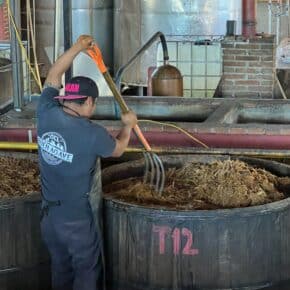

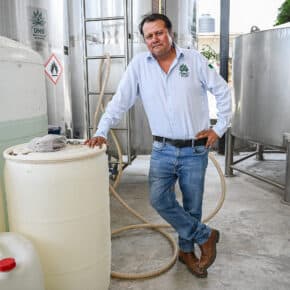
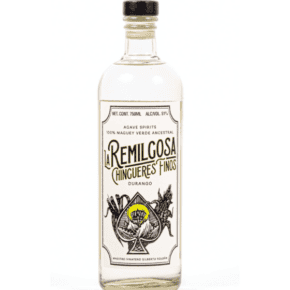
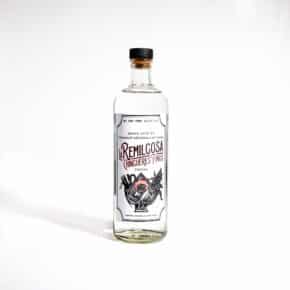
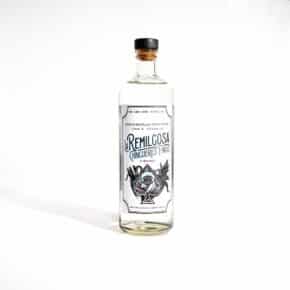


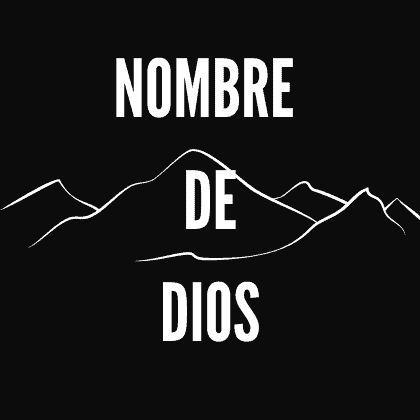



Leave a Comment